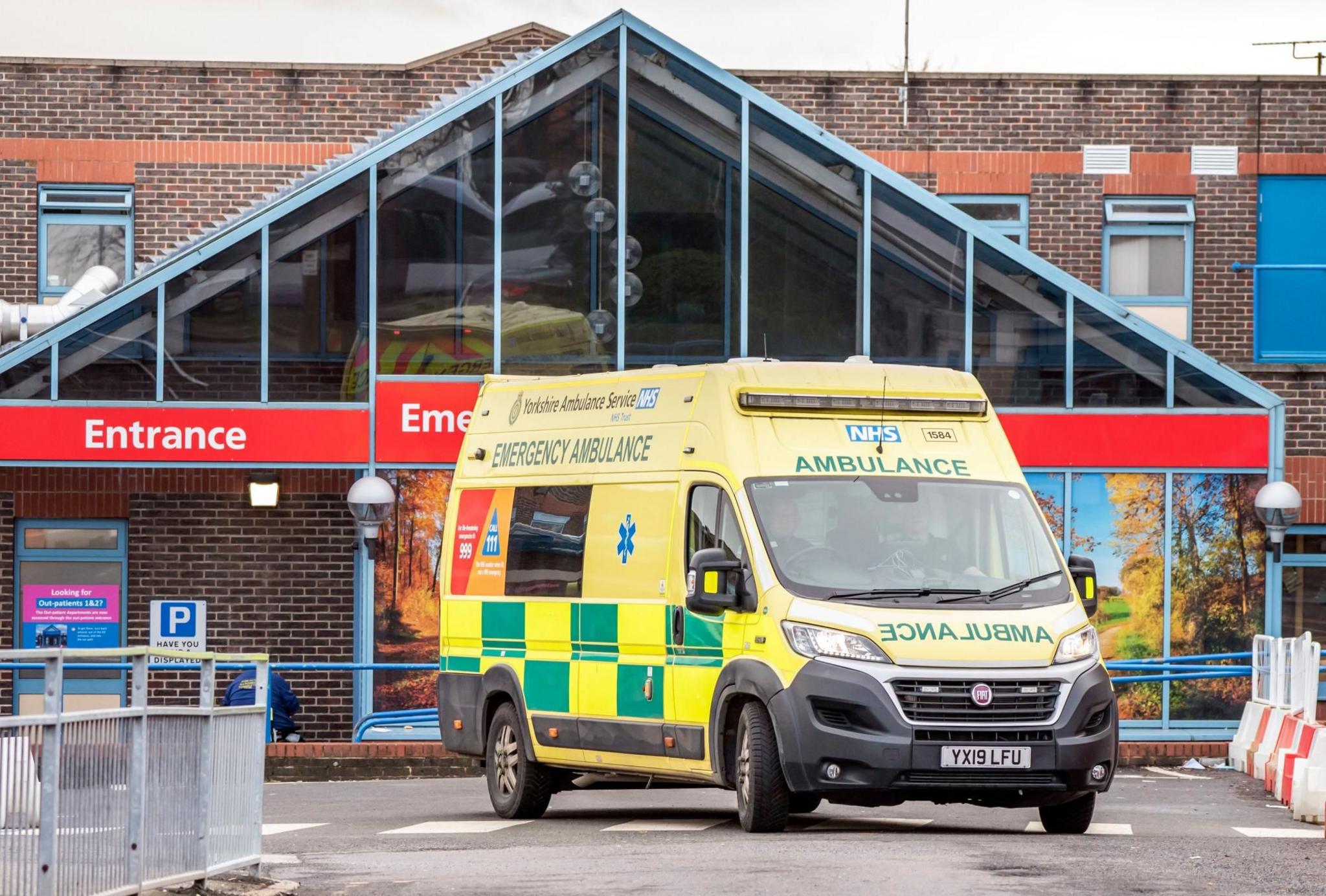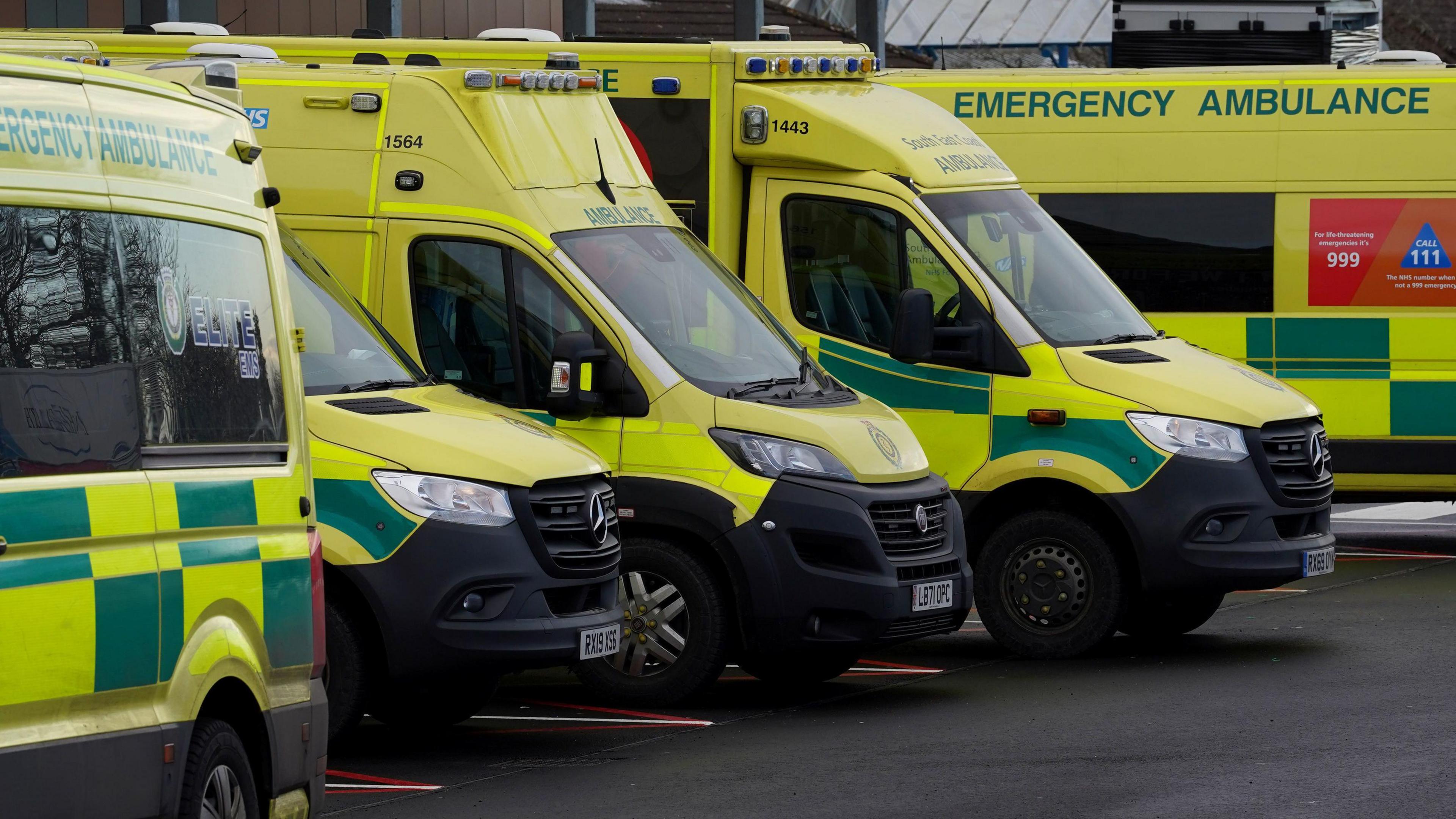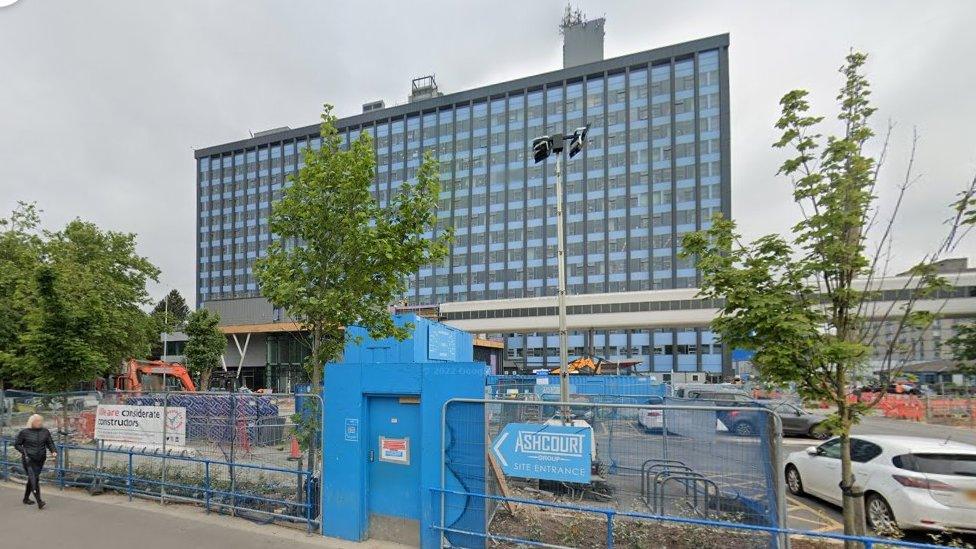Worry over lack of beds in Yorkshire hospitals

Doncaster Royal Infirmary reached 100% capacity on 30 November
- Published
Most hospitals across Yorkshire and north-east England have become so full that they breach NHS safety guidelines.
A South Yorkshire trust ran out of beds entirely at one point, latest figures show.
The NHS Confederation, which represents hospital bosses, said they were worried by the situation.
NHS England said rising flu and norovirus cases were putting pressure on the system.
The NHS target is for hospitals to fill no more than 92%, external of their general and acute beds, a category which excludes maternity and mental health wards.
A review found this level marks a “tipping point”, external, above which a lack of beds leads to long waits for patients in A&E.
However, 17 of the 22 trusts across Yorkshire and the North East are already breaching this target as they head into winter, NHS figures show.
The NHS Confederation represents hospital managers.
Rory Deighton, its director of the acute network, said "as bed occupancy reaches 95% and above this week our members will be worried".
He said: "When a hospital has 95% of its beds full it becomes vulnerable to surges in flu or Covid or norovirus in the community."
He added this left frontline staff with "little or no space" to admit patients.
Infection risk
Health think-tank the Nuffield Trust said very busy hospitals led to higher risks for patients.
Fellow Jessica Morris said: “Unfortunately, NHS hospitals are running at the same high levels of occupancy now as they did going into last winter, which proved to be very tough.”
Ms Morris said as hospitals neared full capacity, it became harder to admit patients or place them in the right wards.
She said patients who had "started off in a less appropriate ward" were more likely to have to be moved.
She said: "This raises the risk of infection and is likely to increase the amount of time they need to spend in hospital, making it still harder to admit other patients.”
Across Yorkshire and the North East, Doncaster and Bassetlaw Teaching Hospitals NHS Trust had the highest occupancy levels.
On average, 98.8% of its general and acute beds were filled in the week ending 3 December, the latest for which figures are available.
It had no spare beds at all when the daily snapshot was taken on 30 November.
The trust runs Doncaster Royal Infirmary and Montagu Hospital in South Yorkshire as well as Bassetlaw Hospital in Nottinghamshire.
Denise Smith, its chief operating officer, said: “Our hospitals are currently very busy, and we ask local people to only attend services when it is absolutely necessary."
She said all beds were in operation at Doncaster and they also had "additional flexibility at Bassetlaw Hospital to manage further demand".
The second busiest was Calderdale and Huddersfield NHS Foundation Trust, with 97.9% of its beds full on average that week.
Bosses at the trust, which runs Calderdale Royal Hospital and Huddersfield Royal Infirmary, said patient care was their “absolute priority”.
Chief operating officer Jonathan Hammond said: “We have taken extra measures to ensure we can care safely for our patients by using areas to provide extra beds which may be needed for emergency admissions."
NHS England said across the country, a rise in viruses such as flu had put pressure on the system.
Professor Julian Redhead, national clinical director for urgent and emergency care, said measures they had put in place meant there were “almost 1,400 more general and acute hospital beds open compared to the same time last year” across England.
Follow BBC Yorkshire on Facebook, external, X, external and Instagram, external. Send your story ideas to yorkslincs.news@bbc.co.uk, external.
- Published7 December 2023

- Published29 November 2023
